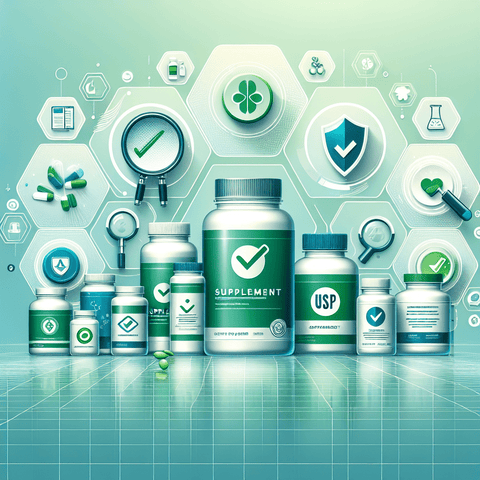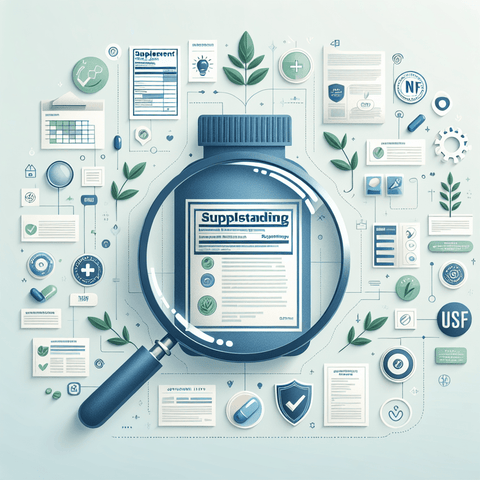Introduction
In recent years, the landscape of nutritional supplements has experienced an unprecedented surge in popularity. With increasing awareness about health, wellness, and preventative care, more individuals than ever are turning to dietary supplements to fill nutritional gaps, enhance vitality, and support specific health goals. From multivitamins to specialized formulas like omega-3s or immune boosters, the options are virtually limitless. This explosion in options, however, comes with its own set of challenges: how can consumers navigate this crowded market safely and effectively?
As the supplement industry continues to grow and evolve, so does the variability in product quality, safety standards, and ingredient transparency. Unscrupulous manufacturers often exploit consumer ignorance, marketing false claims, concealing unlisted ingredients, or producing products with contaminants. Consequently, consumers face the daunting task of distinguishing between safe, efficacious products and those that could potentially jeopardize their health. This is especially crucial given that supplements are not regulated as stringently as pharmaceuticals, meaning safety and quality rely heavily on manufacturers’ honesty and regulatory oversight.
The purpose of this comprehensive guide is to equip you with the practical knowledge and expert tips necessary to identify safe and effective supplements amidst the cacophony of options. By understanding critical safety criteria, trusted brand indicators, ingredient quality considerations, certification standards, and red flags for scams, you can make informed decisions that protect your health and maximize the benefits of supplementation. Whether you're new to supplements or a seasoned user, these insights will help you prioritize your health and avoid pitfalls in a crowded and complex market.
1. Understanding What Safe Supplements Are and Why They Matter
When discussing safe supplements, it’s essential to define what safety entails within the context of nutritional products. A safe supplement is one that is produced under good manufacturing practices (GMP), contains the ingredients listed on the label in accurate amounts, is free from contaminants such as heavy metals, bacteria, or adulterants, and does not pose an undue risk when used as directed. Safety, in this sense, encompasses both the purity and potency of the product, as well as its appropriateness for the consumer’s individual health context.
Unsafe supplements can lead to various health risks. Contaminants like lead, mercury, or harmful bacteria can cause acute poisoning or long-term health issues. Incorrect dosages or unlisted ingredients could lead to adverse reactions, especially when combined with other medications or underlying health conditions. For example, some supplements might contain unapproved pharmaceuticals or stimulants that could cause cardiovascular problems or interactions with prescription drugs.
Why is supplement safety so critical for long-term health? Because even seemingly harmless nutrients can be problematic if contaminated or misrepresented. Chronic exposure to contaminants might lead to unintended health consequences, while inaccurate labeling can undermine health goals or lead to dangerous overdoses. As consumers, we rely on regulatory bodies — such as the FDA in the United States or EFSA in Europe — to set standards. Unfortunately, dietary supplements are not as strictly overseen as medicines, which makes consumer vigilance and knowledge more vital than ever.
Understanding the role of these regulatory agencies and the limitations of their oversight is key. Their primary function is to ensure that supplement manufacturers follow GMP standards. Still, enforcement is variable, and many unsafe products slip through the cracks. Therefore, being an informed consumer, scrutinizing labels, and choosing reputable sources are essential strategies for ensuring safety while enjoying the benefits of supplementation.
2. Follow Reliable Supplement Safety Tips to Protect Your Health
Safety begins with diligent label scrutiny. Always verify ingredient lists and avoid products with proprietary blends that conceal the exact amounts of each component. Proprietary blends may hide potentially harmful ingredients or obscure effective dosages, making it difficult to assess what you’re actually consuming. Transparent labeling that lists all ingredients and their quantities helps you make informed choices.
Transparency extends beyond ingredient lists. Look for products that provide detailed label information, including source and manufacturing details. Trustworthy brands often include batch numbers, manufacturing dates, and contact information, which facilitate traceability. This transparency is a sign of accountability and quality assurance.
Beware of exaggerated claims and miracle cures. Phrases like “completely safe,” “cure-all,” or “miracle solution” are red flags. Legitimate supplements are supported by scientific evidence, and their health benefits are typically modest and well-documented. Be skeptical of products promising rapid, drastic improvements or cures for serious illnesses, as these claims are usually unsubstantiated and potentially misleading.
Additionally, research potential interactions with medications or existing health conditions. For instance, some herbal supplements can interfere with blood thinners or blood pressure medications. Consulting your healthcare provider before beginning any new supplement regimen is a prudent step, especially if you are pregnant, nursing, or managing chronic health issues.
Proper storage is also crucial. Keep supplements in cool, dry places, away from sunlight, to prevent degradation. Avoid purchasing from sources with poor hygiene or those selling outdated or unsealed products, which might lead to contamination. Recognize unusual or unverified ingredients, such as substances with unclear origins or newly marketed compounds lacking safety data.
Finally, stay alert to warning signs of substandard products—such as broken seals, odd odors or colors, or products that arrive from unverified sources. If a product seems suspicious, report it to regulatory authorities or consumer protection agencies to protect yourself and others from potential harm.
3. Trust Trusted Supplement Brands Known for Quality and Transparency
Selecting reputable brands is one of the most effective ways to ensure supplement safety and efficacy. Trusted brands prioritize quality control, transparency, and scientific backing. They often feature rigorous testing, adhere to GMP standards, and provide detailed, truthful labeling.
The characteristics that define a trustworthy brand include transparency about ingredient sourcing, manufacturing processes, and third-party testing. Reputable brands often publish certificates of analysis and quality reports, giving consumers confidence that what’s inside the bottle matches label claims.
Some well-regarded brands are recognized not only for product quality but also for consumer education and ethical practices. When researching a supplement brand, examine their history, reviews, and reputation in the industry. Look for brands that have been independently tested by third-party organizations like NSF International, USP Verified, or ConsumerLab. These certifications indicate adherence to high safety and quality standards.
For example, a trusted brand producing omega-3 supplements prioritizes sourcing high-quality fish oil, employs rigorous purification processes, and conducts independent testing for contaminants. Regularly using such brands reduces the risk of exposure to harmful substances or mislabeled products.
Building long-term trust with high-quality brands means consistently choosing products from companies that prioritize transparency, safety, and scientific validation. To find these brands and explore their options, visit trusted category pages such as omega-3 supplements or explore other trusted categories on Topvitamine.com.
4. Evaluate Quality Supplement Ingredients for Maximum Effectiveness and Safety
The foundation of an effective supplement lies in its ingredients. High-quality, bioavailable ingredients ensure that your body can absorb and utilize the nutrients efficiently. Natural ingredients sourced from reputable suppliers are generally preferable, but synthetic ingredients can also be effective if produced under strict controls.
Ingredient sourcing directly influences safety and efficacy. Wild-caught fish for omega-3s, organically grown herbs, or pharmaceutical-grade Vitamin D are examples of high-quality sources. On the other hand, poor sourcing can introduce contaminants or inconsistent potency, rendering the supplement less effective or unsafe.
Recognizing the difference between natural and synthetic ingredients is important. Natural options tend to be more bioavailable, meaning the body can absorb them more efficiently. For instance, natural vitamin E (d-alpha-tocopherol) may be more effective and better tolerated than synthetic versions.
The dosage and potency of ingredients are critical. A supplement with insufficient amounts may not provide the desired health benefits, whereas excessive doses could be harmful. Always check the label for sufficient dosage ranges supported by scientific evidence. For example, magnesium supplements provide benefits when dosed appropriately—consult your healthcare provider or trusted sources to determine optimal daily intake.
Avoid unnecessary fillers, artificial colors, or preservatives, which do not add health value and may cause adverse reactions in sensitive individuals. Look for ingredients backed by scientific research demonstrating their safety and effectiveness.
When scrutinizing supplement labels, consider the ingredient list carefully, noting the form of nutrients and their amounts. For example, consider choosing bioavailable forms like methylcobalamin over cyanocobalamin for vitamin B12, or natural curcumin extracts rather than synthetic variants. This approach maximizes the health benefits while minimizing potential risks.
5. Understand Supplement Certification Standards to Ensure Authenticity and Safety
Certification standards serve as independent guarantees of a supplement’s safety, purity, and quality. Recognized standards include NSF International, USP Verified, and ConsumerLab testing. These organizations conduct rigorous evaluations, including testing for contaminants, verifying ingredient accuracy, and inspecting manufacturing practices.
The significance of these certifications cannot be overstated. They provide an added layer of confidence that the product has undergone thorough third-party testing and adheres to high standards. For consumers, selecting certified products reduces the risk of consuming contaminated or mislabeled supplements.
Case studies have demonstrated that certified products tend to have fewer contaminants and more accurate labels than non-certified counterparts. For example, certified omega-3 products are tested for heavy metals, ensuring they meet safety standards for seafood-based supplements.
Certifications influence consumer confidence and safety, especially in products like [Vitamin D](https://www.topvitamine.com/collections/vitamin-d-benefits-sources-safety) and [Magnesium](https://www.topvitamine.com/collections/magnesium-benefits-energy-muscle-bone-support), where purity and accurate dosing are crucial. To locate certified supplements, look for certification logos on product packaging, verify their credentials with the certifying agencies, and consult product descriptions for independent testing information.
6. Avoid Supplement Scams by Recognizing Red Flags and Using Critical Judgment
The supplement market, unfortunately, is rife with scams and misleading marketing tactics. Recognizing red flags can save consumers from wasting money or risking their health. Common scams include products with unsubstantiated health claims, exaggerated promises, or those claiming to cure diseases.
Warning signs include claims like “razor-sharp memory,” “rapid weight loss,” or “total cure for [insert illness].” Be skeptical of products that suggest they work instantly or are “clinically proven” without providing credible evidence. Always cross-check such claims with independent scientific sources.
It’s important to avoid pyramid schemes or multi-level marketing practices that prioritize recruitment over product quality. Celebrity endorsements can be manipulative; always verify the product’s scientific backing rather than relying solely on endorsement fame.
To verify claims, research ingredients and health benefits through trusted scientific databases and official sources. Protect your personal and financial information when purchasing online by using secure websites and avoiding suspicious vendors. If a product seems suspicious, report it to regulatory agencies, and consult healthcare professionals for advice.
Staying vigilant and employing critical judgment ensures you select supplements that genuinely support your health goals without falling prey to scams or misleading marketing tactics.
Conclusion
Navigating the crowded market of nutritional supplements requires a mindful, informed approach. Prioritizing safety begins with understanding what makes a supplement safe, scrutinizing labels, choosing reputable brands, evaluating ingredient quality, and relying on third-party certifications. Recognizing red flags and scams further safeguards your health. Remember, supplements should complement a balanced diet and healthy lifestyle, not replace medical treatment or professional advice.
By arming yourself with this knowledge and applying these expert tips, you can confidently select products that are both safe and effective. Make your choices count—your long-term health depends on it. For a curated selection of trusted supplements, visit topvitamine.com and explore their extensive product assortment designed to support your well-being securely and reliably.
Q&A Section
Q: How can I identify if a supplement is safe to use?
A: Ensure it comes from a reputable brand that follows good manufacturing practices, check for third-party testing or certification logos (like NSF or USP), and review detailed ingredient labels. Avoid proprietary blends and suspiciously exaggerated claims.
Q: What certifications should I look for in supplements?
A: Look for certifications such as NSF International, USP Verified, or ConsumerLab. These indicate independent testing for quality, purity, and safety standards.
Q: Are natural ingredients always safer than synthetic ones?
A: Not necessarily. Both natural and synthetic ingredients can be safe or unsafe depending on their source, purity, and manufacturing process. Always choose high-quality, well-sourced ingredients verified by trusted brands.
Q: How do I avoid supplement scams?
A: Be skeptical of products with exaggerated health claims or miracle cures. Verify claims through independent research, avoid celebrity-endorsed products without scientific backing, and purchase from trusted sources with secure websites.
Q: Can I take supplements with my medications?
A: Consult your healthcare provider before starting any new supplement, especially if you are on medication, to check for possible interactions or contraindications.
Important Keywords
- Safe supplements
- Supplement safety tips
- Trusted supplement brands
- Quality ingredients
- Supplement certification standards
- Supplement scams red flags
- Third-party testing
- Supplement safety guide
- Recognizing counterfeit supplements
- Healthy supplement choices



